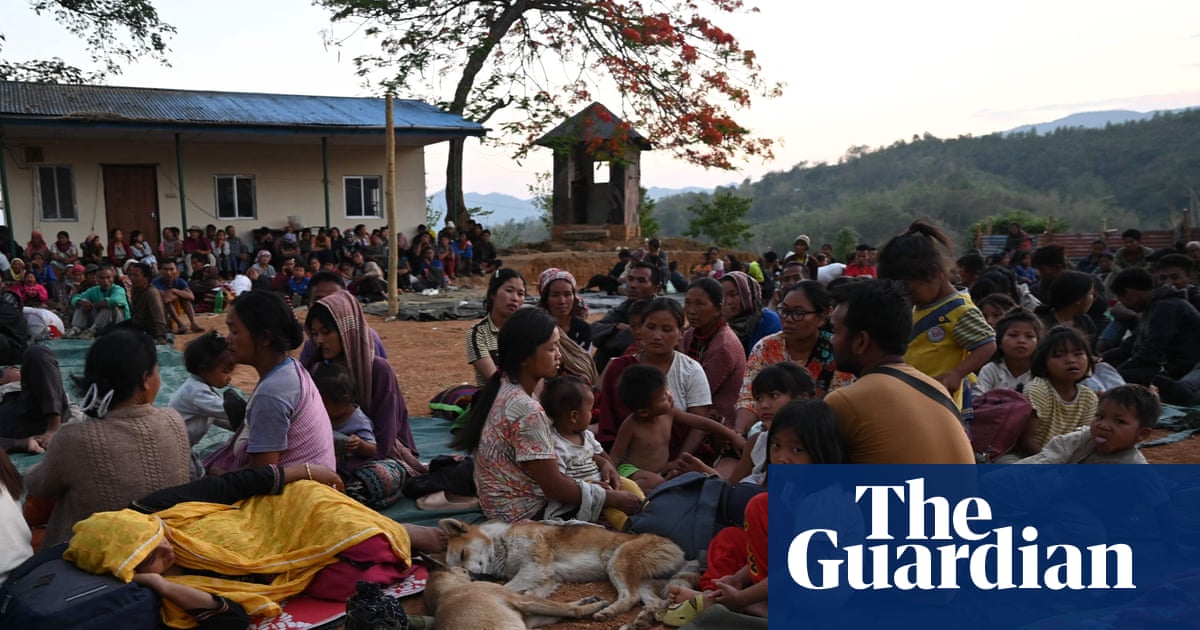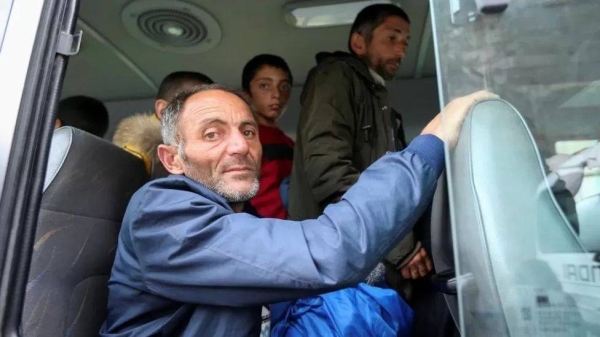
Mamang Vaiphei hid in the jungle for three nights after a mob attacked his village in Manipur, the remote Indian state where ethnic violence has reportedly killed at least 54 people.
About 23,000 people have fled the unrest that erupted last week in the hilly north-east state bordering Myanmar.
The latest clashes erupted between the majority Meitei people, who are mostly Hindu and live in and around the state capital, Imphal, and the mainly Christian Kuki tribe of the hills.
“The Meitei people first burned down 26 or 27 houses,” said Mamang, a father of five who is now sleeping out in the open in an army camp with about 900 others bringing similar horror stories.
“Then they came again and finished all 92 houses [in the village], ransacked the church, the school and whatever was left,” the 54-year-old said, surrounded by exhausted and traumatised men, women and children.
There have long been tensions in the far-flung states of north-east India sandwiched between Bangladesh, China and Myanmar.
The spark for the latest violence was a protest about plans to give the Meitei “scheduled tribe” status, in a form of affirmative action, guaranteeing them quotas of government jobs and college admissions.
Violence erupted in Imphal and elsewhere with protesters setting fire to vehicles and buildings and, according to villagers, Meitei mobs armed with guns and petrol cans then attacking Kuki settlements in the hills.
“To save our lives, we contacted Assam Rifles, so that they rescued us from our place of hiding,” he said.
In and around Imphal on Sunday, life had come to a standstill, with businesses shut and deserted roads still littered with charred cars.
The violence has eased but Brig Sandeep Kapoor from the Indian army said on Sunday they still received 50 to 60 calls for help.
His teams had rescued about 2,000 people – Kukis and some Meitis – in the last 48 hours, he said.
The army said that bringing people to safety was not easy given the polarisation and complete breakdown of dialogue between the communities.
“We can’t move them in the open as there are chances that if members of the other community see them, when we cross their villages along the highway, they may get aggressive,” said another Indian army officer.
A few men, infants, older women and young girls were huddled inside three military trucks, including Leh Haokip, 35, from Gotangkot village.
He told AFP he saw the “looting of my home, the stealing of my cattle and the fire” from a distance.
“There was no police or state help and now we don’t know what to do or where to go,” he said.










